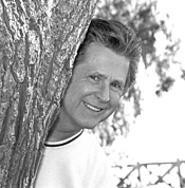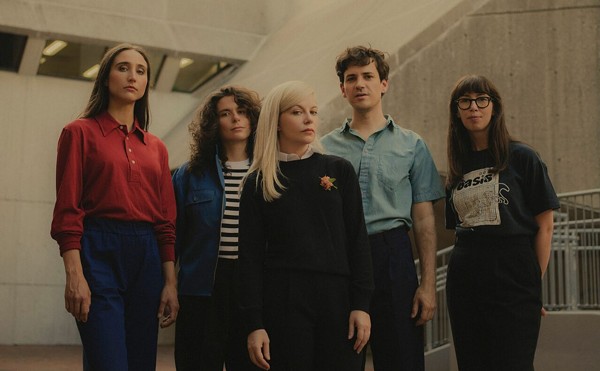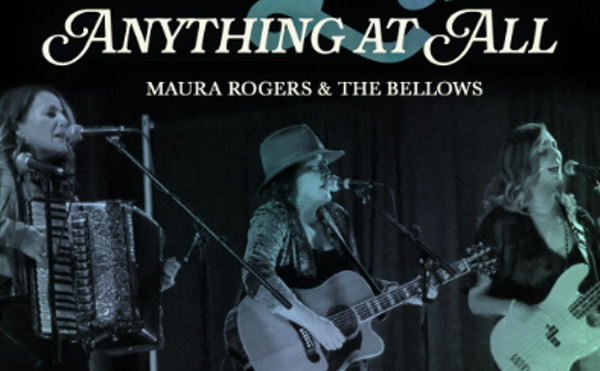Wilson, the head Beach Boy, crafted indelible surf, girl, and car tunes in the early 1960s and spawned a key rock album in 1966's Pet Sounds, but his work from then on is better known for promise than delivery. Being called a genius in one's 20s can be damaging. Competing with the Beatles comes with immeasurable pressure; Sgt. Pepper's Lonely Hearts Club Band is a tough act to precede or match, let alone follow.
Today, at 62, Wilson has only himself as competition. The Beach Boys are self-parodying golden oldies who pump up state fairs, and the Beatles have receded into legend. This year and next, meanwhile, are shaping up as the time for Wilson to finally become a brand of his own.
Last week, he rejoined the mainstream with Smile, an album that, in the late '60s, was supposed to best Sgt. Pepper and seal his claim to greatness. Unfortunately, it's one the Beach Boys never officially put out; until now, Smile, the greatest album never released, has been synonymous with anticipation and has led to several inspired bootlegs.
Now, 38 years after conception, it has been issued not as a Beach Boys album, but as a Brian Wilson album, on Nonesuch, the Warner Bros. boutique label that legitimizes pedigreed maverick rockers from Wilco to David Byrne. It is beautiful, beginning with a sublime, wordless vocal and segueing into "Heroes and Villains" -- a remarkable Americana single that was originally scheduled to herald Smile. The album ends exultantly with "Good Vibrations," the Beach Boys' only No. 1 hit until they devolved into bad Jimmy Buffett for a week in 1988 with "Kokomo."
Wilson's work with Los Angeles vocal group the Wondermints -- particularly with "musical secretary" Darian Sahanaja -- has been stunning, ever since his commercial rehabilitation began in the mid-'90s. And the arrangements are as exciting as any he's ever crafted.
Today, Wilson says the music was ahead of its time; the period spanning 1966 and 1967, when he and longtime collaborator Van Dyke Parks were trying to put Smile together, "was a crazy time of life for me. I was taking a lot of drugs during those days."
The notoriously shy Wilson is eager to popularize the official version of the legendary album. His telephone manner is natural but halting, making it hard to determine whether he's talking to make himself feel better or to push his product.
Breaking through to the wounded boy Wilson so zealously protects or the man he is now isn't easy. It must have been incredibly hard for his wife, Melinda, and the others who have wanted him to express -- no, realize -- Smile for so long.
"It's more than I ever wanted it to be, it's fantastic," Wilson says of the "official" Smile. It also is different from the original, he says, "in the fact we created a third movement."
Nevertheless, Wilson, who fell apart under the stress of recording Smile during the autumn of 1966 and winter of 1967, still seems damaged from the sessions. At the time, disappointed that Pet Sounds didn't sell as well as more conventional, earlier Beach Boys albums, he began to drift away from the Boys, sequestering himself in obsessive composition with Parks. The Boys, meanwhile, smarted at the alliance; the arrogant Mike Love, in particular, considered Brian overly demanding and thought Parks's surrealistic lyrics made no sense (they sure don't, if you keep your thinking linear).
Three years ago, emboldened by critical and popular response to live shows of solo and Beach Boys material, Wilson began to consider reviving the aborted Smile, snippets of which surfaced on albums including the iffy Smiley Smile, the stronger Wild Honey and 20/20, and the enigmatic, romantic Surf's Up.
A feature-length documentary, Beautiful Dreamer: Brian Wilson and the Story of Smile, debuted on Showtime this week. It's a moving account of Wilson's mental illness -- some say that drugs played a minor part; others suggest that LSD was a potent trigger -- and his rehabilitation. There's a big gap, however: Aside from several provocative photos, Dreamer doesn't cover 1968 through 1994, when Wilson was lost in the psychological desert and fell under the spell of discredited psychologist Eugene Landy. Wilson finally escaped Landy's control in the early '90s.
A more authentic inquiry into the Beach Boys story is Keith Badman's The Beach Boys: The Definitive Diary of America's Greatest Band on Stage and in the Studio. Scheduled to hit bookstores on October 15, the book tracks the Boys from 1961 to 1976, and its details of the endless, tortuous Smile sessions are especially illuminating.
Recalling the album and his years out of the spotlight, Wilson seems oddly wooden. The conversation proceeds in fits and starts. It's as if Wilson is assembling his thoughts in a modular fashion, just as he did on Smile, where pieces of one song would wind up in another and titles would shift as seamlessly and unpredictably as the harmonies.
Is he happy these days? "I'm happier than I was before, a couple years ago. I'm happier now." Does he work out? "I run every day, I exercise every day. I take all my vitamins and my vegetables," he says with a laugh. "I get my meat, too."
The music of Smile "was too advanced for people, so we held it for 38 years." He laughs again. It also was written by him and Parks -- not the Beach Boys -- he notes.
Is he in touch with Mike Love and Bruce Johnston, the key survivors from those early years? "Not at all," he says. "We don't talk anymore. We kind of drifted apart. We broke up. I do my own Brian Wilson concerts. Mike Love and Bruce Johnston go out under the Beach Boys. The musicians I'm playing with now are far superior to the Beach Boys musicians. It's a much more musical group."
He has written several songs for "my new rock-and-roll album that we might do in January," Wilson says, the conversation ending as fitfully as it began. "I got to do something with my time. I can't just sit on my butt all day and not do nothing."













